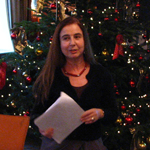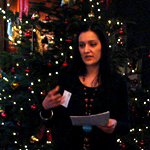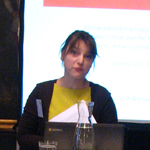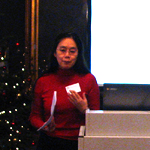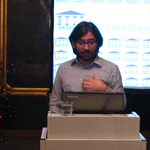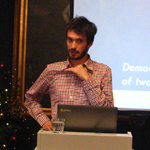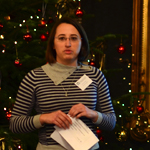Euroacademia Conferences
 Europe Inside-Out: Europe and Europeanness Exposed to Plural Observers (9th Edition) April 24 - 25, 2020
Europe Inside-Out: Europe and Europeanness Exposed to Plural Observers (9th Edition) April 24 - 25, 2020 Identities and Identifications: Politicized Uses of Collective Identities (9th Edition) June 12 - 13, 2020
Identities and Identifications: Politicized Uses of Collective Identities (9th Edition) June 12 - 13, 2020 8th Forum of Critical Studies: Asking Big Questions Again January 24 - 25, 2020
8th Forum of Critical Studies: Asking Big Questions Again January 24 - 25, 2020 Re-Inventing Eastern Europe (7th Edition) December 13 - 14, 2019
Re-Inventing Eastern Europe (7th Edition) December 13 - 14, 2019 The European Union and the Politicization of Europe (8th Edition) October 25 - 26, 2019
The European Union and the Politicization of Europe (8th Edition) October 25 - 26, 2019 Identities and Identifications: Politicized Uses of Collective Identities (8th Edition) June 28 - 29, 2019
Identities and Identifications: Politicized Uses of Collective Identities (8th Edition) June 28 - 29, 2019 The European Union and the Politicization of Europe (7th Edition) January 25 - 26, 2019
The European Union and the Politicization of Europe (7th Edition) January 25 - 26, 2019 7th Forum of Critical Studies: Asking Big Questions Again November 23 - 24, 2018
7th Forum of Critical Studies: Asking Big Questions Again November 23 - 24, 2018 Europe Inside-Out: Europe and Europeanness Exposed to Plural Observers (8th Edition) September 28 - 30, 2018
Europe Inside-Out: Europe and Europeanness Exposed to Plural Observers (8th Edition) September 28 - 30, 2018 Identities and Identifications: Politicized Uses of Collective Identities (7th Edition) June 14 - 15, 2018
Identities and Identifications: Politicized Uses of Collective Identities (7th Edition) June 14 - 15, 2018
Papers
The Image of Salome in Art in the 19th and 20th Centuries as a Symbol of Social Ideology
The image of Salome has been central for works of art for centuries. At first it was an image that was annexed to St. John the Baptist's Passion and then in the Renaissance and especially in the 19th century that image took life of its own.The European Capitals of Culture Program as a Tool of Cultural Diplomacy and Engagement
The paper will use the framework of policy instruments/tools as a way of evaluating the ECOC Program as an exercise in cultural diplomacy and engagement.Culture and Identity as Tools for Forging Europeanization
Cultural diplomacy is understood as an exchange of ideas, information, values, traditions and beliefs and this can include fields such as art, sport, literature, music, science and economy.‘Let’s tell Poland to the world’. Activities of the Adam Mickiewicz Institute and Strategies of Polish Cultural Diplomacy in the Years 200-2010. Strategies. Facts. Critical Notes
The background of my speech are activities of the Adam Mickiewicz Institute, a governmental cultural institution whose aim is to promote Polish culture abroad and build the brand of ‘Poland’.Projecting `Britishness´ Abroad: The Case of the British Council
The paper investigates cultural diplomacy in the contemporary United Kingdom. It does so by examining the discourses on Britishness produced by the British Council, a body which operates at the arm’s length from the government whose activities are nonetheless incorporated in ‘public diplomacy’ pursued by the UK government.How Enlightened is the European Despotism? The Persistence of the Democratic Deficit in the European Union
There is a wide variety of denominators for the EU in addressing its political structures of decision making and its inherent democratic deficit features, and yet there is still room for conceptual innovation. The democratic problem or the democratic deficit issue was and continues to be one of the main challenges facing the European Union in any terms or from any position is understood or described.Fiscal Deficit or Democratic Deficit? How Finance has Disenfranchised the European Electorates
This paper explores the consequences on the so-called ‘democratic deficit’ of the recent developments within the Eurozone. It argues that the April 2011 Europlus agreement – which consolidates surveillance mechanisms on fiscal and economic policies of member states – together with the wider practices adopted to deal with ‘fiscal irresponsibility’Legislative Transparency and Censorship in the Council of Ministers of the European Union
The Council of Ministers as a legislative body advocates transparency in the legislative process, yet continues to censor certain documents pertaining to the negotiation process, even after these negotiations have been completed.European Parliament and Its Administration: What Do We Know and Where Do We Go Next?
What would be a parliament without its administration? This is the question we look at in this paper. More specifically we deal with the second biggest assembly in Europe, i.e. European Parliament. The scope of the study is restricted to officials working in committee secretariats within the Secretariat and officials working in political groups of the European Parliament.Does the EU Enlargement Influence the National and European Identity? A Cross-National Analysis in Old and New Member States
The most recent enlargements of 2004 and 2007 meant the formal inclusion of approximately 90 million citizens into the European Union (EU). The inclusion of 12 new Member States moved the EU border eastward and diminished the heavy influence of some Old Member States (e.g.: the Polish and Czech influence on the Lisbon Treaty).

